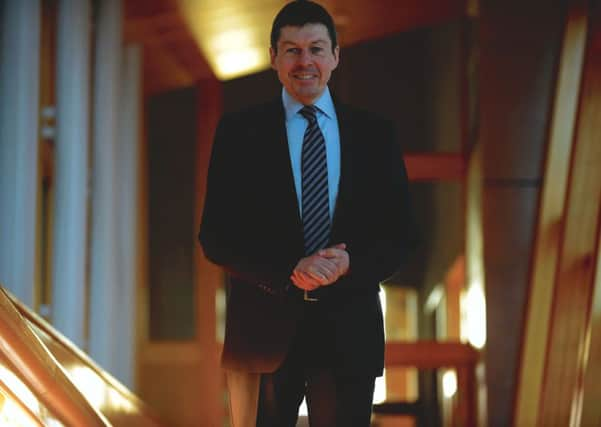Leader: Timely warning for Holyrood to win over the cynics


But cynicism – sometimes used as a substitute for wisdom by those who fear to express optimism in case they appear naive – can be dangerous.
A glance around the world finds evidence of a growth in anti-democratic politics, with the violence of the Gilets Jaunes in France, US President Donald Trump’s rhetoric about locking up political opponents and “draining the swamp” of Washington DC, and over-heated claims that those opposed to Brexit in the UK are guilty of “treason”.
Advertisement
Hide AdAdvertisement
Hide AdDespite the fervour of the independence debate, Scotland’s politics may seem calmer, but Holyrood’s Presiding Officer, Ken Macintosh, today warns in a Scotland on Sunday interview that the same tide of discontent is building here too.
People, he warns, are “in difficulty, worried about their job, worried about their income and security” and no longer trust politicians, experts or indeed anyone.
Speaking 20 years after the Scottish Parliament was established, Macintosh calls for Holyrood to “refresh” itself so the public are better able to give voice to their concerns.
These are wise words from our Presiding Officer. Holyrood was deliberately built with the main chamber as a hemicycle – common in other European countries, but the opposite of the benches in Westminster. Together with the element of proportional representation this was aimed at encouraging consensus and compromise.
But Scotland – especially in recent years – hasn’t been so different from the House of Commons in its tone or inability to encourage MSPs to work across the divide. The debate around independence has prompted greater enmity than would be ideal.
It is vital that MSPs are prepared to listen, act in the best interests of their constituents and are not simply seen to be party drones or “in it for themselves”.
Perhaps our parliamentarians should have bonuses contingent on whether public trust in Holyrood rises or falls?
Parliament should also dare to be more radical. Scotland introduced a smoking ban in 2006, a year ahead of similar legislation in England. That was controversial before its introduction, but very quickly came to be seen as a major step forward. It was a relatively rare moment of MSPs taking the right kind of risk.
Advertisement
Hide AdAdvertisement
Hide AdOur politicians should beware falling behind public opinion out of timidity. Other reforms in health and education are needed and MSPs may find that the Scottish public is more ready to accept them than they realise.
After 20 years, the report card on Holyrood is probably a “B”. A promising start, but with clear areas for improvement.